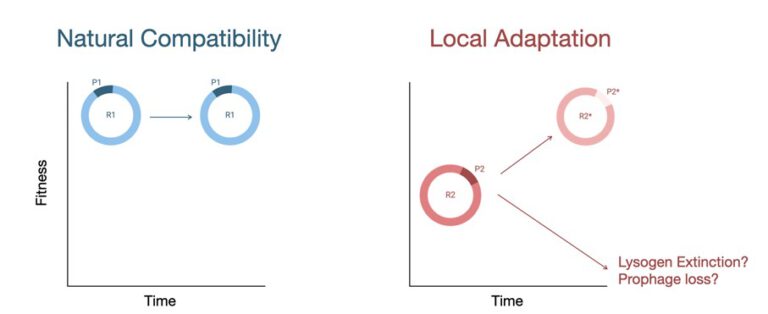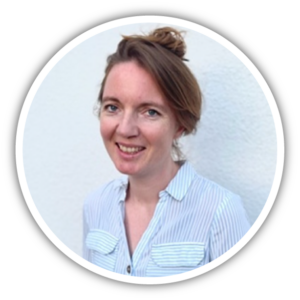GROUP Wendling / Associated Project
Drivers and Constraints of Prophage Persistence in Natural Communities
Despite the omnipresence of prophages in natural isolates, little is known about whether prophages are persistent integrative elements or transient free riders.
This project explores the persistence and evolution of prophages in natural bacterial communities. To do so, we are conducting a prospective cohort study during which we are repeatedly sampling resident E. coli from human gut microbiomes. By combining the cohort study with in vitro gut mesocosms experiments and advanced bioinformatic analyses we address fundamental questions in prophage ecology and evolution: are prophages persistent or transient? Which ecological and evolutionary factors promote or constrain prophage persistence in natural communities over time?

Figure 1: Possible evolutionary drivers that can explain prophage persistence over time: (A) Prophage-bacteria combinations with high natural compatibility, for instance, due to positive epistatic interactions will stably co-exist over time. (B) Prophage-bacteria combinations with low compatibility can ameliorate prophage-imposed fitness costs via compensatory adaptations.
Principal Investigator(s)

Prof. Dr. Carolin Wendling
Ludwig-Maximilians-University Munich
Max von Pettenkofer-Institute
E-Mail: wendling@mvp.lmu.de
Homepage: https://www.mvp.uni-muenchen.de/microbiology/wendling/
PhD student(s)
Karina Krammer, krammer@mvpi.lmu.de
Publications
- Bailey, ZM., Igler, C., Wendling, CC. (2024) Prophage maintenance is determined by environment-dependent selective sweeps rather than mutational availability” Current Biology https://doi.org/10.1016/j.cub.2024.03.025
- Kupczok, A., Bailey, ZM., Refardt, D., Wendling, CC. (2022) “Co-transfer of functionally interdependent genes contributes to genome mosaicism in lambdoid phages” Microbial Genomics 8(11). https://doi.org/10.1099/mgen.0.000915
